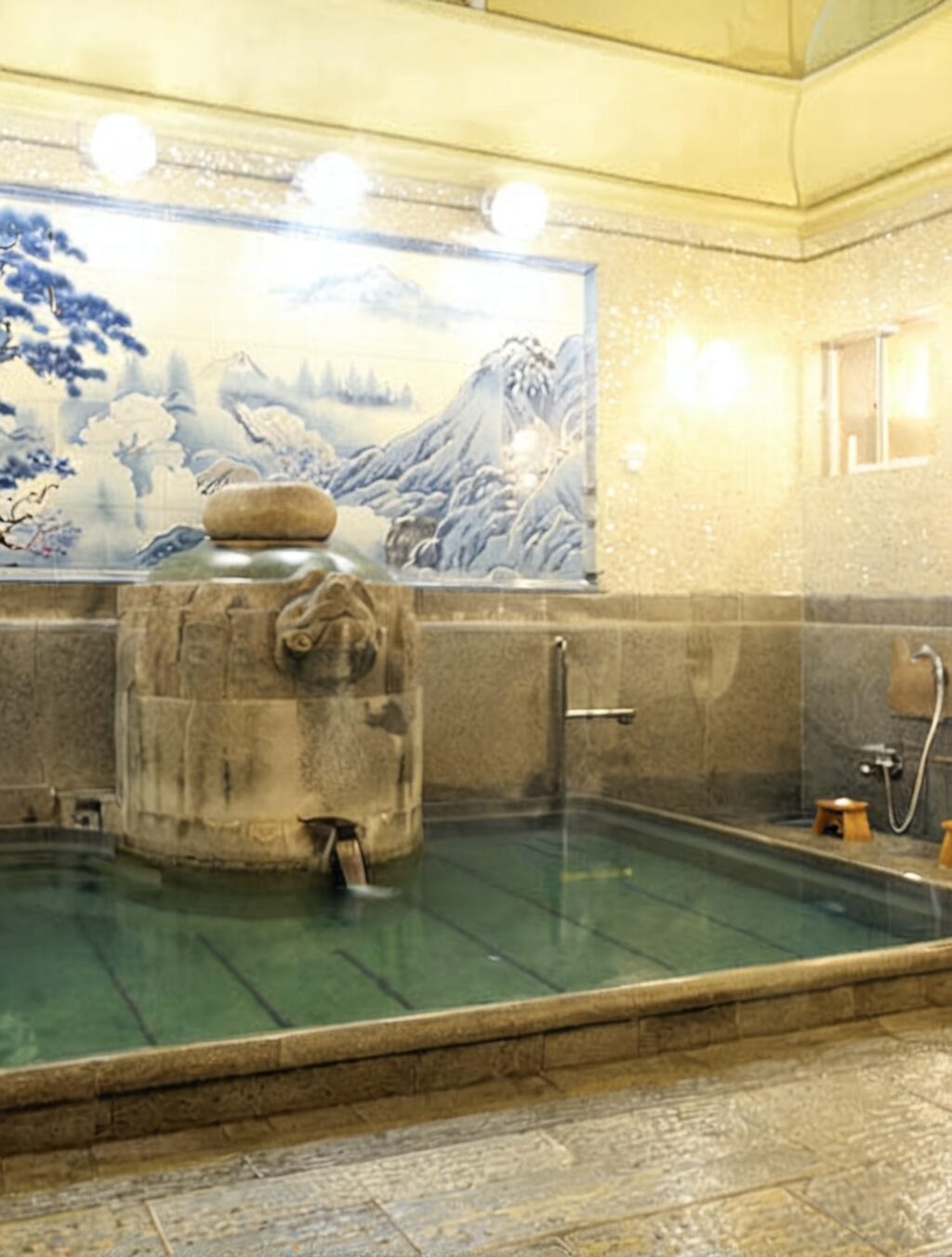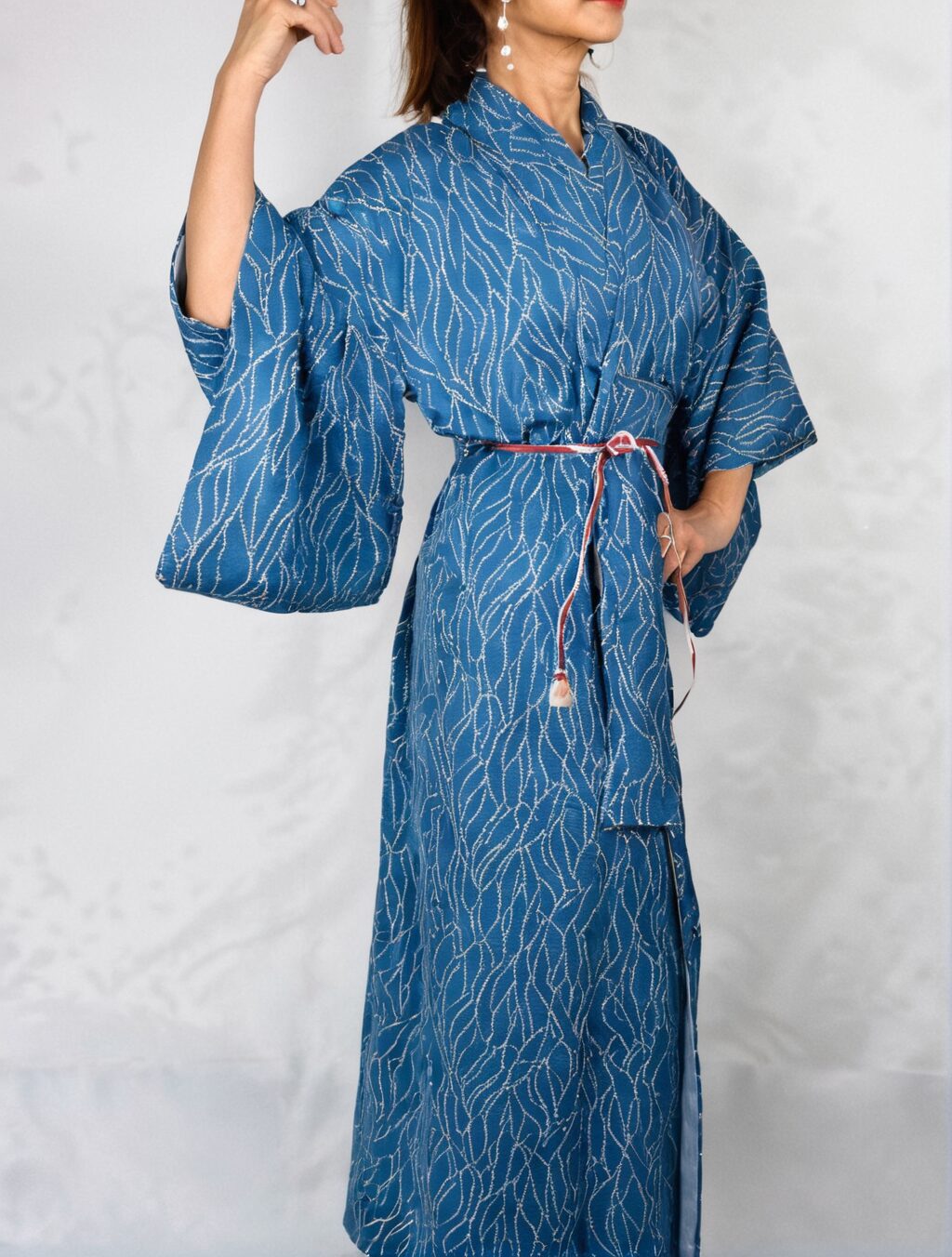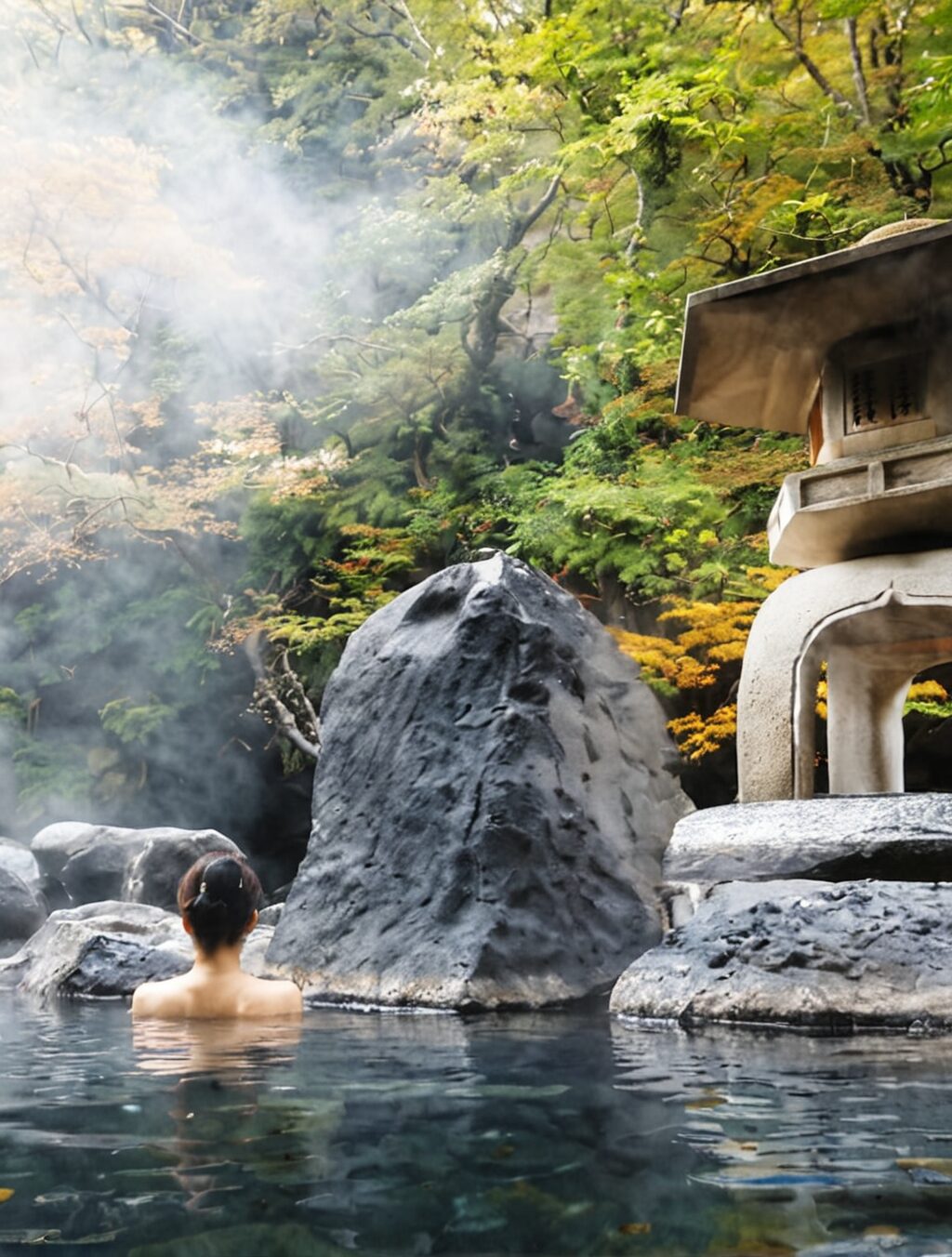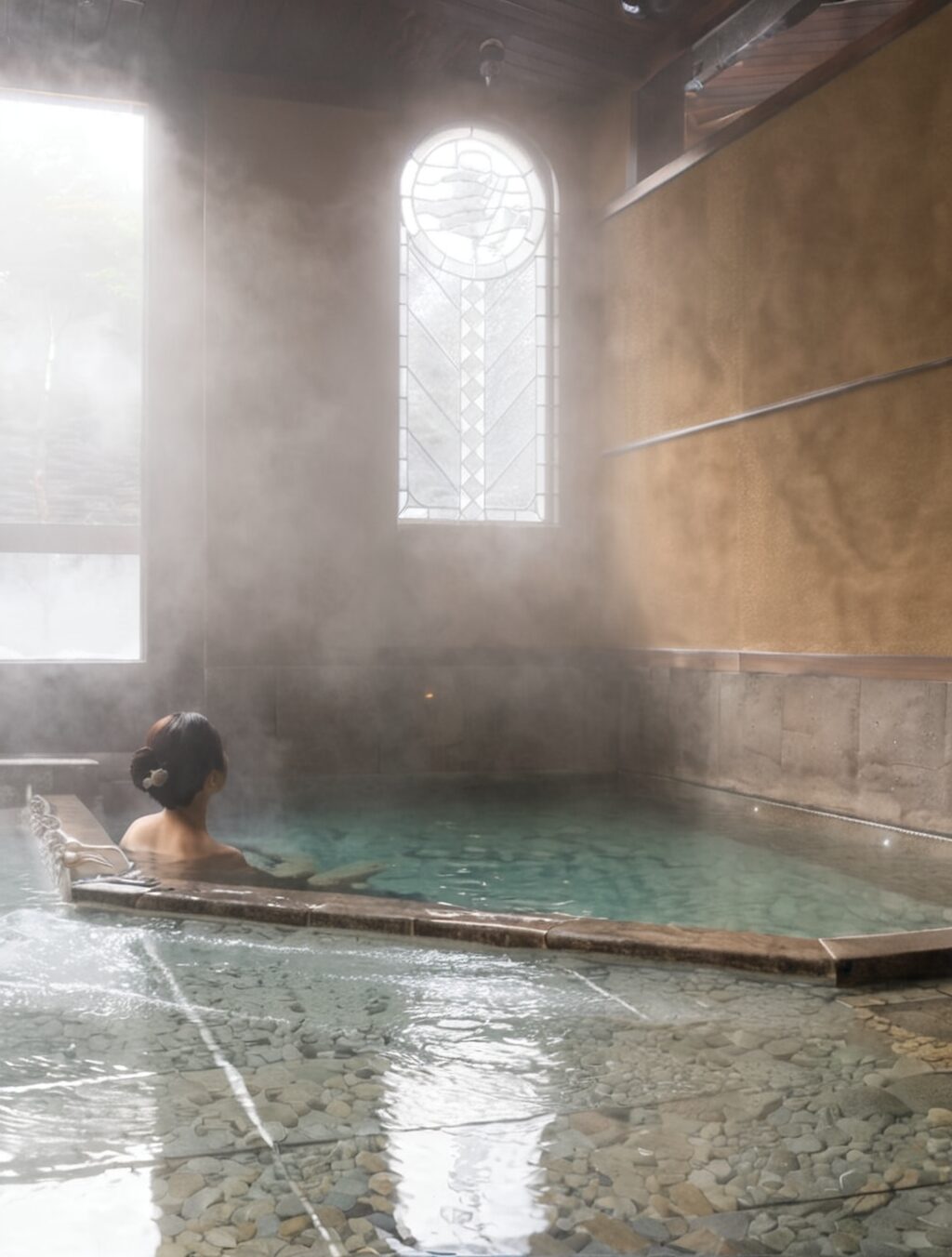How to Japanese Onsen: A Relaxing and Refreshing Japanese Bathing Experience
Onsens, or natural hot springs, are a cornerstone of Japanese culture. They offer a unique and rejuvenating bathing experience that is both physically and mentally beneficial. Whether you’re a first-time visitor or a seasoned onsen enthusiast, here’s a comprehensive guide to help you make the most of your Japanese onsen experience:
Win a Free Trip to Japan!
Experience cherry blossoms and ancient temples
Before You Go:
- Respect the Rules: Onsens have strict rules of conduct to ensure a respectful and hygienic environment. Be sure to read and follow the posted guidelines before entering.
- Be Naked: Onsens are traditionally enjoyed in the nude. While some facilities may provide bathing suits, most require you to bathe without clothing. Embrace the experience and follow the local customs.
How to Tie a Japanese Onsen Robe:
- Place the robe on your body, with the front overlapping the back.
- Tie the inner tie around your waist, making sure it’s snug but not too tight.
- Cross the front panels and tie the outer tie securely at the back.
How to Use an Onsen:
- Rinse Off: Before entering the onsen, take a quick rinse in the shower area to remove any dirt or sweat.
- Immerse Gradually: Start by dipping your toes into the water to adjust to the temperature. Then, slowly lower your body into the onsen.
- Relax and Unwind: Allow the warm water to envelop your body and soothe your muscles. Close your eyes, take deep breaths, and let the stress melt away.
- Cool Down: After 10-15 minutes, step out of the onsen and cool down by rinsing off or taking a cold shower.
How to Enjoy a Japanese Onsen:
- Take Your Time: Onsens are a place to relax and recharge. Don’t rush your experience.
- Hydrate: It’s important to stay hydrated while soaking in an onsen. Drink plenty of water before, during, and after your soak.
- Respect Others: Maintain a respectful tone and avoid talking loudly or splashing water.
- Leave Your Electronics Outside: Onsens are a place to disconnect. Leave your phone and other electronics in the designated area.
FAQs:
- Can I bring a towel? Most onsens provide towels, but it’s always a good idea to bring your own if possible.
- Are there separate onsens for men and women? Yes, most onsens have separate facilities for men and women.
- Can I eat or drink in the onsen? Eating and drinking are typically not allowed in the onsen area.
Immersing yourself in a Japanese onsen is a truly unique and revitalizing experience. By following the guidelines and embracing the local customs, you can ensure a relaxing and memorable onsen visit. So, next time you’re in Japan, be sure to find an onsen and indulge in this cherished Japanese tradition!
how to japanese onsen

Japanese Onsen: A Comprehensive Guide to Bathing and Beyond
Onsens, or natural hot springs, are a cornerstone of Japanese culture, offering a unique and rejuvenating bathing experience. Whether you’re planning a trip to Japan or simply curious about this fascinating tradition, here’s a comprehensive guide to help you navigate the world of Japanese onsens:
How to Do Japanese Onsen:
- Before You Go: Familiarize yourself with the etiquette and rules of onsens, which typically involve bathing naked and respecting the communal space.
- How to Use an Onsen: Start by rinsing off in the shower area, then gradually immerse yourself in the onsen water. Relax and unwind, but be mindful of the time you spend soaking.
- Cooling Down: After your soak, step out and cool down by rinsing off or taking a cold shower.
How to Book an Onsen in Japan:
- Online Platforms: Websites like Japanican and Klook offer online booking services for onsens across Japan.
- Hotel Concierge: If you’re staying at a hotel, ask the concierge to assist you with booking an onsen experience.
- Walk-Ins: Some onsens accept walk-ins, but it’s always advisable to call ahead to confirm availability.
How to Make Japanese Onsen Egg:
- Place a fresh egg in a small mesh bag or wrap it in cheesecloth.
- Submerge the egg in the onsen water for 15-20 minutes.
- Remove the egg and immediately transfer it to an ice bath to stop the cooking process.
- Peel and enjoy your perfectly cooked onsen egg.
How to Use Onsen Japanese Nail Buffer:
- Soak your nails in warm water to soften them.
- Use the rough side of the onsen nail buffer to gently buff away any ridges or imperfections.
- Flip the buffer to the smooth side and buff your nails to a glossy shine.
FAQs:
- Can I bring my own towel? Some onsens provide towels, but it’s always a good idea to bring your own.
- Are there separate onsens for men and women? Yes, most onsens have separate facilities for men and women.
- Can I eat or drink in the onsen? Eating and drinking are typically not allowed in the onsen area.
Japanese onsens offer a unique and rejuvenating experience that is deeply rooted in Japanese culture. By following the guidelines and embracing the local customs, you can immerse yourself in this cherished tradition and reap its many benefits. So, next time you’re in Japan, be sure to seek out an onsen and indulge in a truly unforgettable bathing experience!
how to tie japanese onsen robe
Onsen Japan: A Guide to Private Onsens, Top Picks, and Cultural Immersion
Onsens, or natural hot springs, are a cornerstone of Japanese culture, offering a unique and rejuvenating bathing experience. Whether you’re seeking a private retreat or an authentic cultural immersion, Japan has an abundance of onsens to choose from. Here’s a comprehensive guide to help you plan your perfect onsen adventure:
Private Onsen Japan:
- Benefits: Private onsens offer a secluded and intimate bathing experience, perfect for couples, families, or those who prefer privacy.
- Booking: Private onsens can be booked through hotels, ryokans (traditional Japanese inns), or specialized websites like Airbnb.
Best Onsen in Japan:
- Kusatsu Onsen, Gunma: Known for its high acidity and healing properties, Kusatsu Onsen is one of the most famous onsens in Japan.
- Dogo Onsen, Ehime: With a history dating back over 3,000 years, Dogo Onsen is one of the oldest and most prestigious onsens in Japan.
- Noboribetsu Onsen, Hokkaido: A vast onsen complex with over a dozen different types of hot springs, Noboribetsu Onsen offers a diverse bathing experience.
Onsen Japan Tokyo:
- Oedo Onsen Monogatari: Located in Odaiba, Oedo Onsen Monogatari is a large onsen theme park with various hot spring baths, restaurants, and entertainment facilities.
- Spa LaQua: Situated in Tokyo Dome City, Spa LaQua is a modern onsen complex with indoor and outdoor baths, as well as massage and spa treatments.
What is an Onsen in Japan?
An onsen is a natural hot spring that contains minerals and therapeutic properties. Bathing in an onsen is believed to have numerous health benefits, including relaxation, improved circulation, and pain relief.
Takaragawa Onsen Gunma Japan:
- Unique Features: Takaragawa Onsen is an outdoor onsen nestled in the scenic mountains of Gunma Prefecture. It offers stunning views of the surrounding nature and a traditional Japanese bathing experience.
Onsens are an integral part of Japanese culture and offer a unique and rejuvenating bathing experience. Whether you’re seeking a private retreat, exploring the best onsens in Japan, or immersing yourself in the local culture, there’s an onsen waiting to welcome you. Embrace the tradition, follow the etiquette, and indulge in the many benefits of Japanese onsens.
how to use onsen japan
Onsen Towns of Japan: Discover the Best Hot Spring Destinations
Onsen towns are charming destinations in Japan that revolve around natural hot springs. These towns offer a unique blend of relaxation, rejuvenation, and cultural immersion. Here’s a guide to some of the best onsen towns in Japan:
Dogo Onsen, Ehime:
- Japan’s oldest onsen, with a history stretching back over 3,000 years.
- Famous for its milky white water and healing properties.
- Explore the historic Dogo Onsen Honkan, a beautiful wooden bathhouse.
Kusatsu Onsen, Gunma:
- Known for its highly acidic waters, which are said to have therapeutic effects.
- Offers a variety of public and private onsen baths.
- Enjoy the vibrant atmosphere of the onsen town, with its shops and restaurants.
Noboribetsu Onsen, Hokkaido:
- A vast onsen complex with over a dozen different types of hot springs.
- Features unique baths, such as the Oyunuma River Hot Spring, which flows through a natural gorge.
- Explore the scenic Jigokudani Valley, known for its steaming hot springs and wild monkeys.
Takaragawa Onsen, Gunma:
- An outdoor onsen nestled in the scenic mountains of Gunma Prefecture.
- Offers stunning views of the surrounding nature and a traditional Japanese bathing experience.
- Stay at one of the traditional ryokans (Japanese inns) in the area to fully immerse yourself in the onsen culture.
Other Notable Onsen Towns:
- Arima Onsen, Hyogo: Known for its “golden” and “silver” hot springs.
- Beppu Onsen, Oita: A coastal town with over 2,000 hot springs.
- Hakone Onsen, Kanagawa: Located in a scenic mountain resort area near Tokyo.
Tips for Visiting Onsen Towns:
- Respect the onsen etiquette, such as bathing naked and rinsing off before entering the baths.
- Try different types of onsen to experience the unique properties of each spring.
- Stay overnight at a ryokan to enjoy traditional Japanese hospitality and onsen access.
- Explore the local attractions and activities beyond the onsen baths.
Onsen towns in Japan offer a rejuvenating and culturally immersive experience. Whether you’re seeking relaxation, healing, or simply a taste of traditional Japan, these charming destinations are sure to leave a lasting impression. Embrace the onsen culture, soak in the therapeutic waters, and create memories that will last a lifetime.


